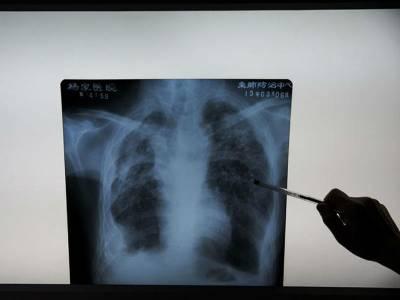- Home
- Editorial
- News
- Practice Guidelines
- Anesthesiology Guidelines
- Cancer Guidelines
- Cardiac Sciences Guidelines
- Critical Care Guidelines
- Dentistry Guidelines
- Dermatology Guidelines
- Diabetes and Endo Guidelines
- Diagnostics Guidelines
- ENT Guidelines
- Featured Practice Guidelines
- Gastroenterology Guidelines
- Geriatrics Guidelines
- Medicine Guidelines
- Nephrology Guidelines
- Neurosciences Guidelines
- Obs and Gynae Guidelines
- Ophthalmology Guidelines
- Orthopaedics Guidelines
- Paediatrics Guidelines
- Psychiatry Guidelines
- Pulmonology Guidelines
- Radiology Guidelines
- Surgery Guidelines
- Urology Guidelines
India major contributor to fatal lung infections: Lancet Study

LONDON: India, China, Nigeria, Pakistan and Indonesia account for over 16 million or half of the global cases of a deadly lung infection in children each year, a study led by an Indian-origin researcher in the UK has found.
A team led by the University of Edinburgh analysed data from 329 studies of Respiratory Syncytical Virus (RSV) infection worldwide.
Their estimates, published in The Lancet journal, indicate that there are more than 33 million cases of RSV infection in children under five globally each year.
Five countries - India, China, Nigeria, Pakistan and Indonesia - account for half of the estimated cases of RSV worldwide, researchers said.
RSV is a common and highly contagious virus that infects the respiratory tract of most children before their second birthday.
Around three million are admitted to hospital each year with the virus, which causes breathing difficulties and wheezing.
Experts report that more than 115,000 children under five are dying each year from complications associated with the infection.
Almost half of those who die in hospital are younger than six months and more than 99 per cent of deaths occur in developing countries, the study estimated.
"We are at an opportune time to step up efforts to prevent RSV infection in young children. With more than 60 candidate vaccines in clinical development, it is likely that an RSV vaccine will be available in the next 5-7 years," said lead researcher Harish Nair, professor at the University of Edinburgh.
"Our findings will provide better evidence to inform global funding priorities to accelerate vaccine development. It will assist policy makers and experts prepare for early introduction of this vaccine in developing countries," he added.
Researchers say more data is needed from Africa and South Asia, where the number of RSV infections may be even higher.
For most babies and young children, it causes nothing more than symptoms of a cold. In some cases, however, it can lead to severe lung complications such as pneumonia or bronchiolitis, researchers said.

Disclaimer: This site is primarily intended for healthcare professionals. Any content/information on this website does not replace the advice of medical and/or health professionals and should not be construed as medical/diagnostic advice/endorsement or prescription. Use of this site is subject to our terms of use, privacy policy, advertisement policy. © 2020 Minerva Medical Treatment Pvt Ltd